As more people gain access to AI and its use increases, so does consumer awareness of the tell-tale signs of non-human generated content. We wanted to put this to the test, to find out whether consumers can tell when content is written fully by Artificial Intelligence and in turn how this impacts how they interact with the content and consider the brand as a result.
Surveying 2,000 UK and US participants, we were able to uncover how many consumers can tell the difference between AI & non-AI-generated content as well as their attitudes towards brands using AI-generated content.
The survey included two articles, one written by ChatGPT and one by a trained copywriter, both had the same brief: “Write 300 words on how to clean your car”.
How many people can tell the difference between content written by AI vs a human?
The survey found that 50% of consumers were able to spot AI-generated copy, with millennials (aged 25-34) found to be the best at spotting the content. This aligns with the age of consumers most likely to use AI when creating content, as data [1] shows millennials are the key users of generative AI.
American consumers are the most clued up on what is and isn’t AI-generated, with US participants 10% more likely to spot AI-generated content than UK consumers. 55% of US participants correctly spotted which copy was written using AI, in comparison with 45% of UK-based consumers.
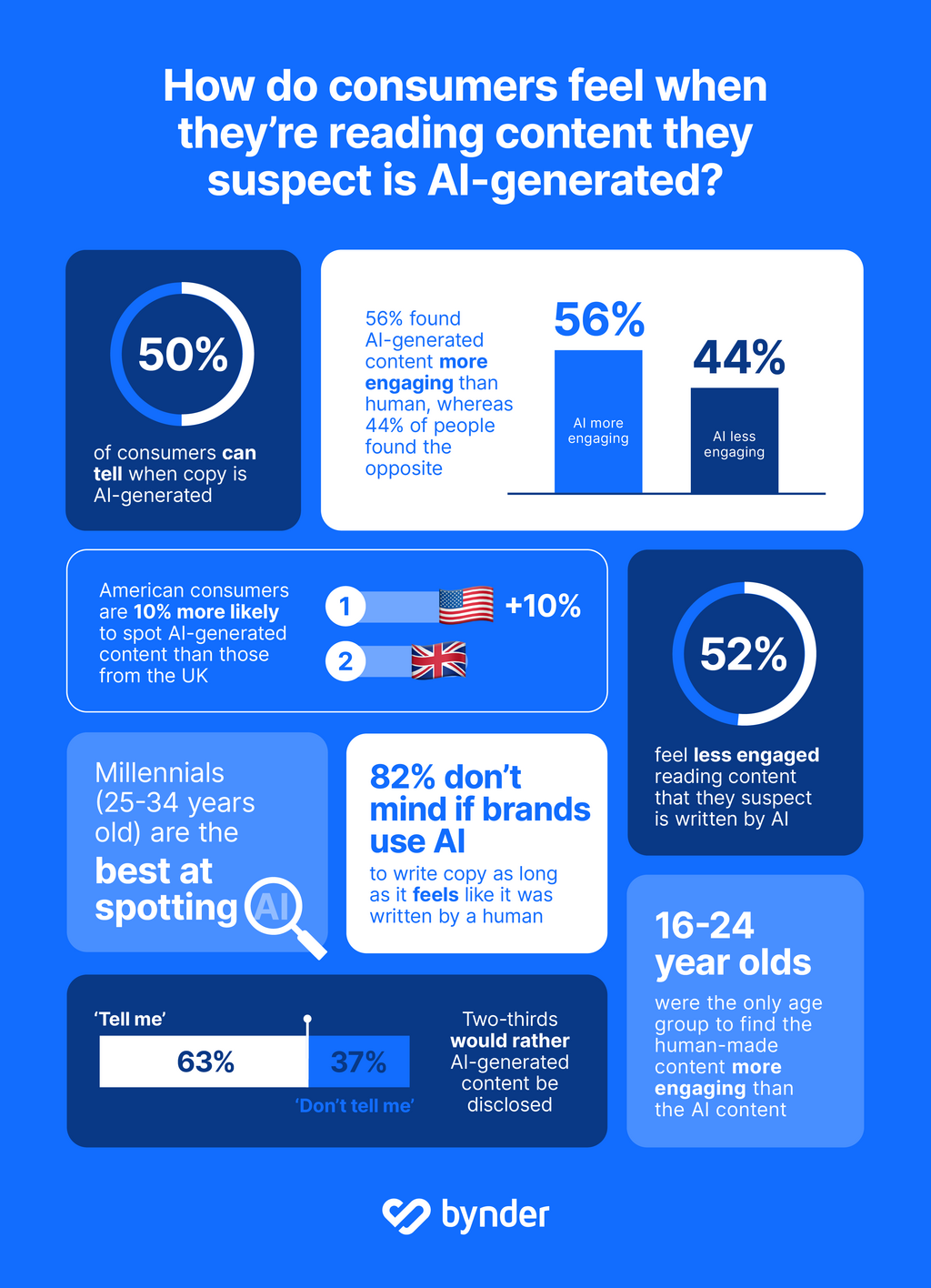
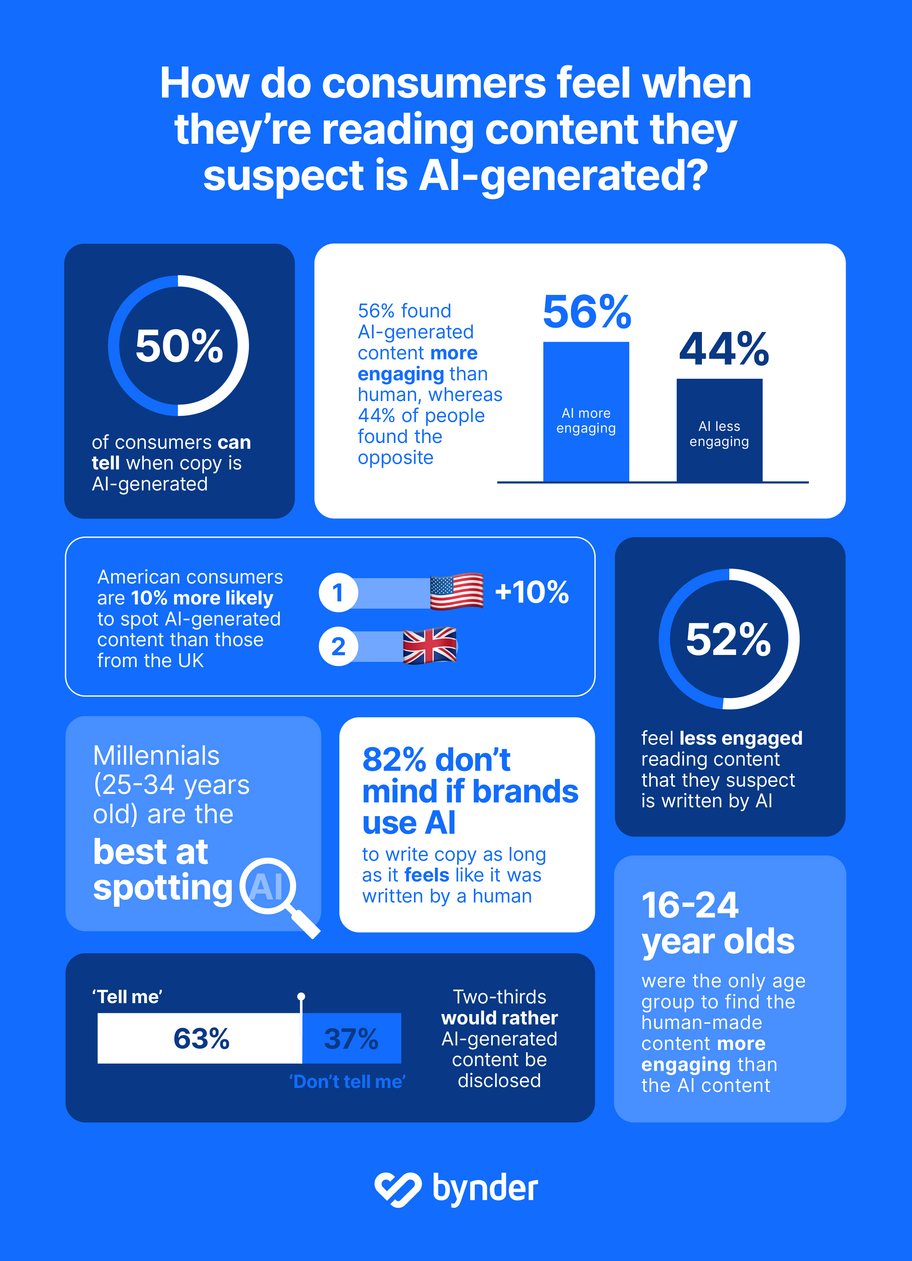
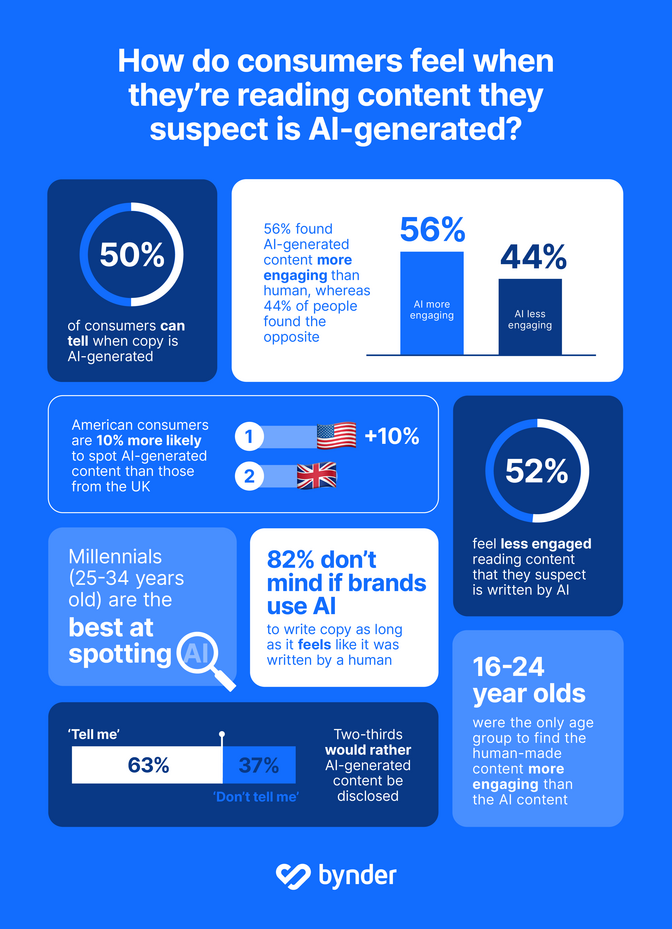
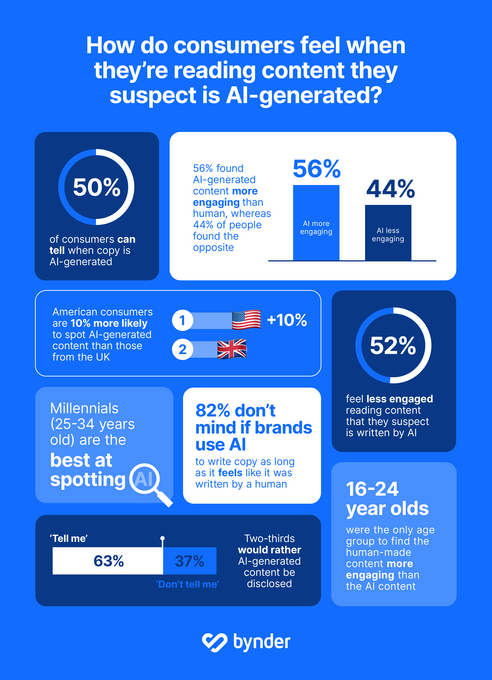
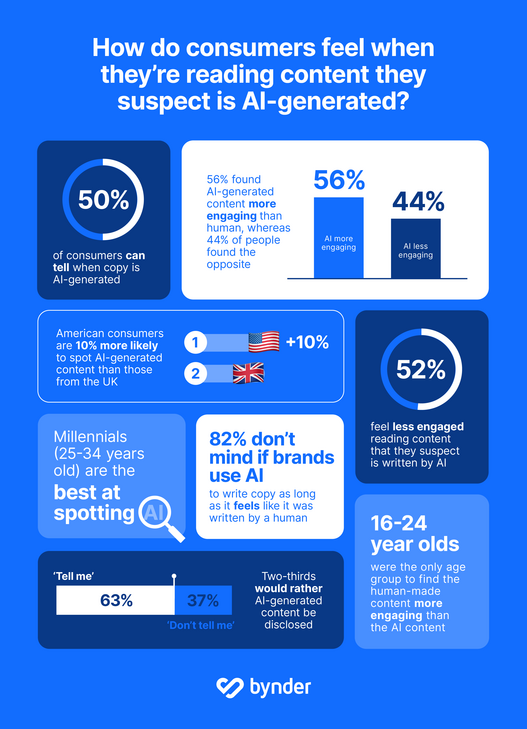
If we think something is written by AI, how does it impact how we engage with the content and brand?
The AI-generated content was found to be the most engaging. Of those who had a preference over the articles, 56% voted that they prefer it over the human-made article.
Interestingly, the study found that when participants are aware that they’re reading AI-generated content, 52% feel less engaged with the content.
Participants aged 16-24 were the only age group to find the content created by a human more engaging than the AI-generated version. Of those in this age bracket who had a preference over the articles, 55% voted for the human written article as being the most engaging.
The survey data found that when consumers believe they are reading AI-generated content they have mixed feelings, depending on where they are reading it.
When asked how they feel when reading copy on a website that they suspect is AI-generated:
- 26% would feel the brand is impersonal
- 20% would feel they are lazy
- 18% would think they are uncreative
- But, 17% would find them innovative
If a consumer is reading copy on social media that they suspect is AI-generated:
- 25% would feel the brand is impersonal
- 20% would feel they are untrustworthy
- 20% would feel they are lazy
- And 19% would think they are uncreative
If a consumer is interacting with a chatbot that they suspect is AI-generated:
- 33% would think they are impersonal
- 17% would think they are lazy
- 16% would find them untrustworthy
When do consumers mind if content is AI-generated?
Exploring whether people want content written by a human or AI-generated content, the survey found that in general opinions are mixed.
The survey found that the most common type of copy that consumers think news articles should be written by a person, with 51% of people preferring human touch over AI-generated news content.
When asked if they believe service reviews should be written by a human, 50% of participants voted yes, with a 50/50 split showing people don’t have a preference as to who writes this content.
In response to online advice guides, people were less likely to mind if they were written by AI, with 41% thinking the guides should be written by a person. Similarly, only 37% of participants think blog content should be written by a person and 31% think product descriptions should be human-written.
The survey asked participants to what degree they agree or disagree with the statement “I don’t mind if brands use AI to help write copy, as long as the piece feels like it is written by a human”. The findings showed 41% of consumers strongly agree and 82% agree overall.
Should AI-generated content be disclosed?
The conversation around AI-generated content and whether it should be disclosed as such has been a hot topic of discussion recently. The survey data revealed that the majority of people (63%) would prefer if AI-generated content was disclosed.
Looking at a split by country, US participants felt the strongest about whether AI-generated copy should be disclosed with 69% voting so. This may reflect Biden’s Executive Order on AI which has started the conversation around legally disclosing content. The UK participants were less likely to mind if the content is disclosed, however still the majority (56%) voted so.
There is a positive trend between age going up and a higher proportion of consumers wanting AI-generated content to be disclosed. The demographic of 16 to 24-year-olds had the lowest percentage of votes for AI-generated content to be disclosed whereas of the 55+ category, 71% voted for preferring it to be disclosed.
Age demographic | % prefer if AI-generated content is disclosed |
16-24 | 45% |
25-34 | 59% |
35-44 | 56% |
45-54 | 59% |
55+ | 71% |
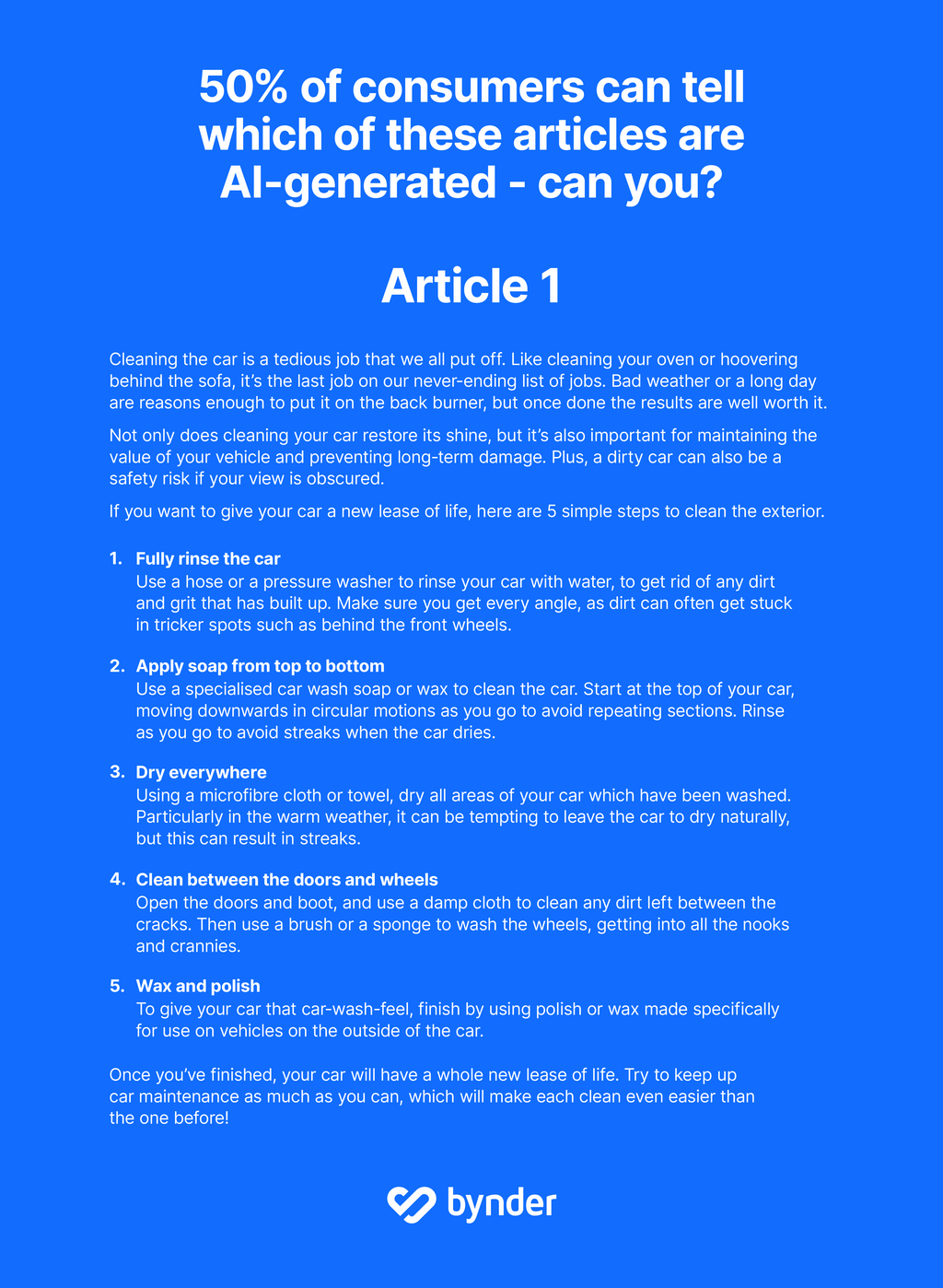

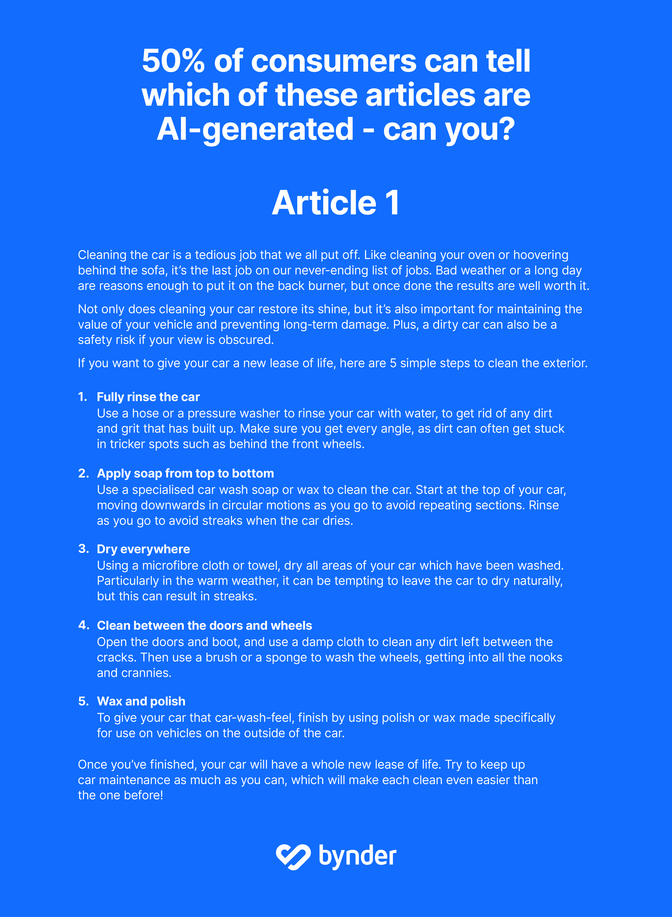
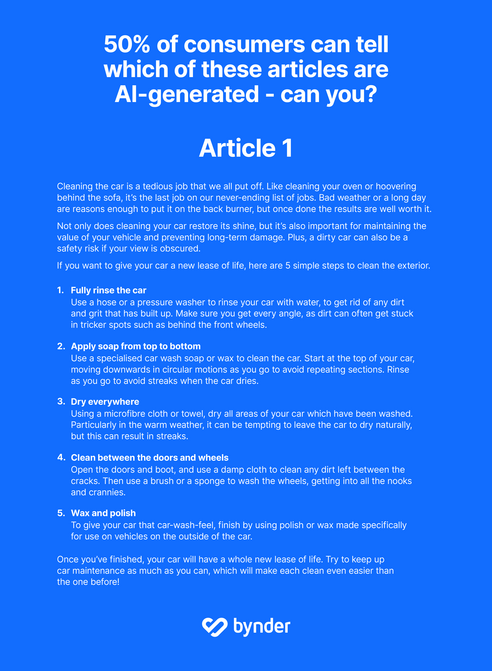
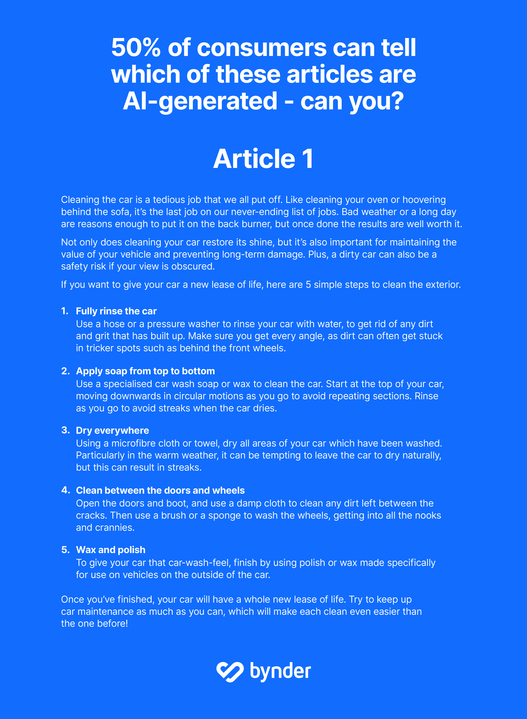
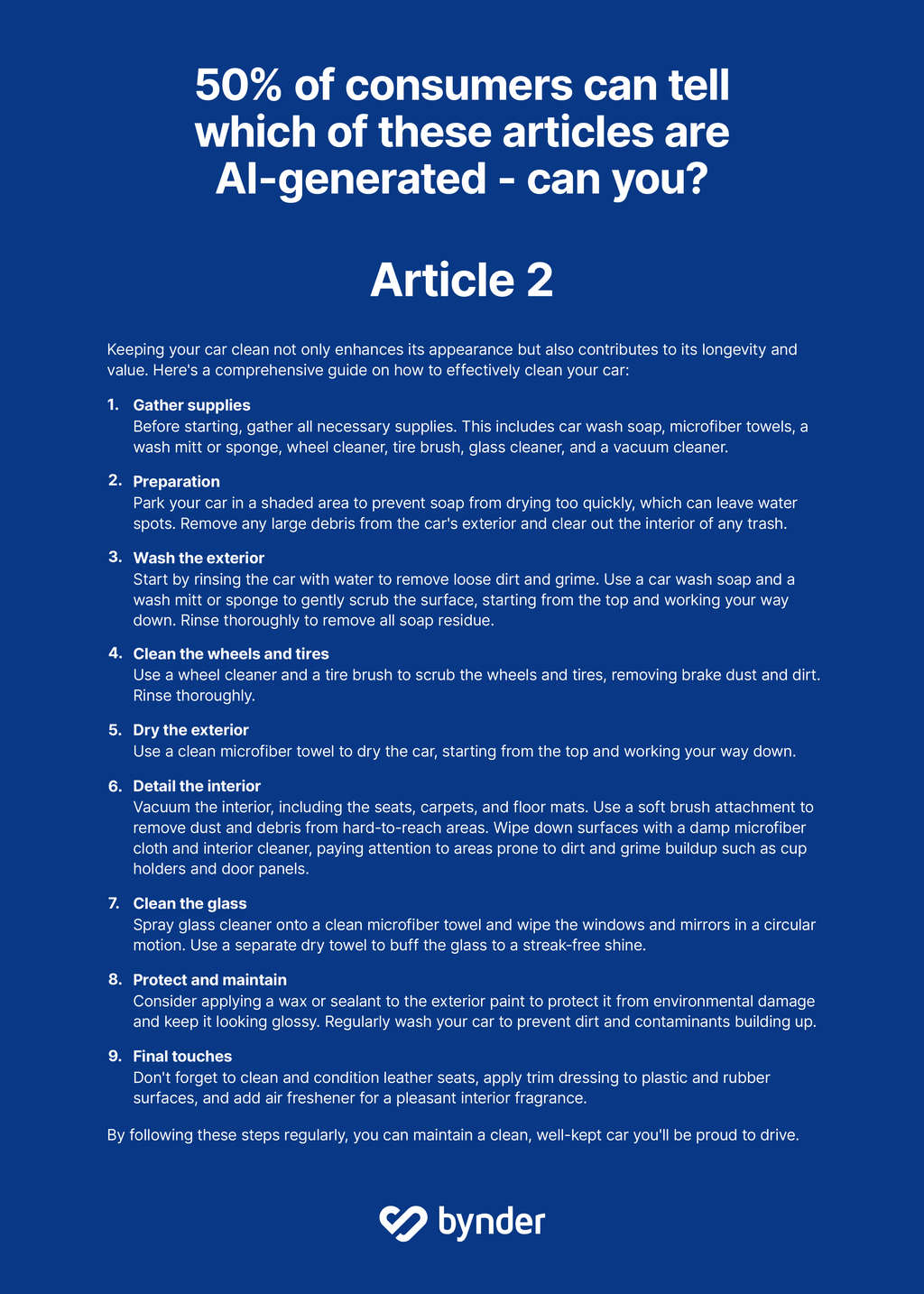
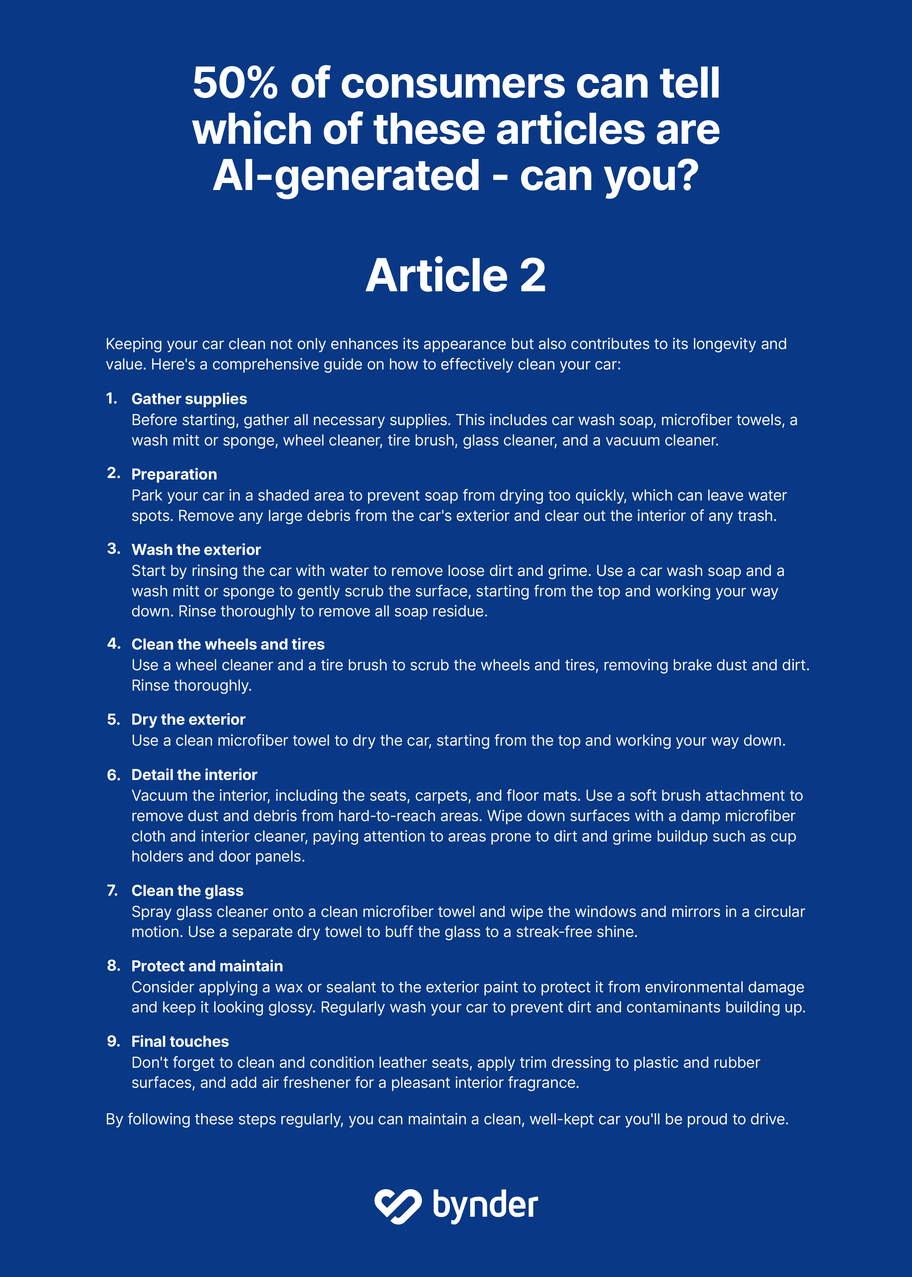
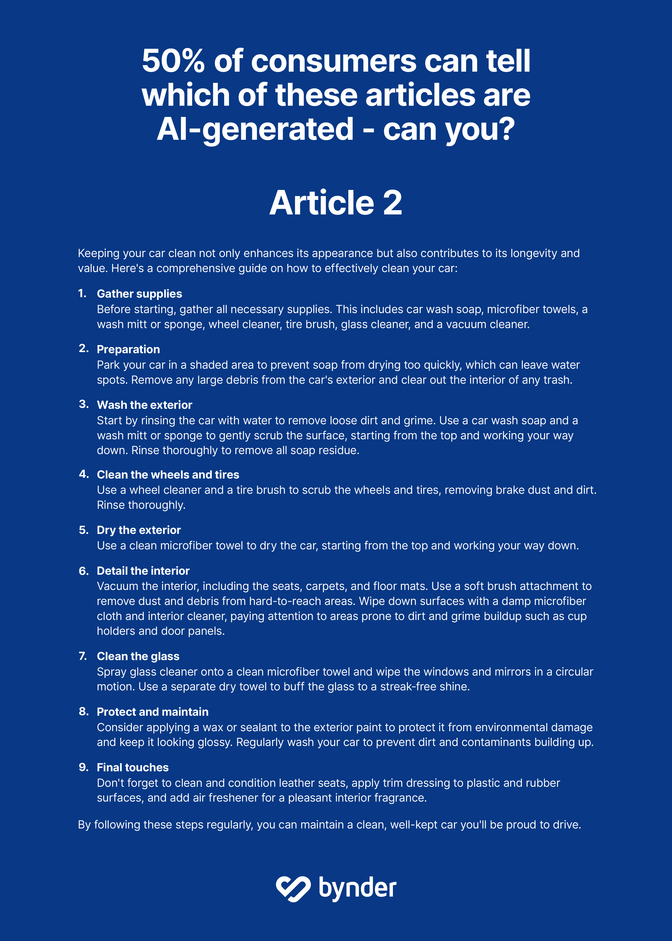
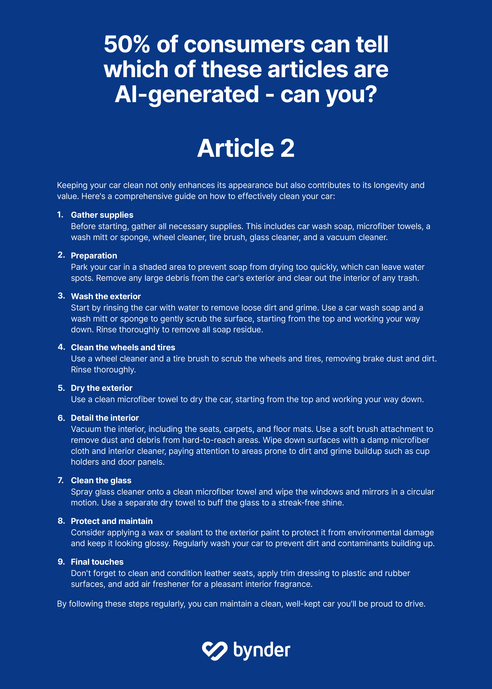
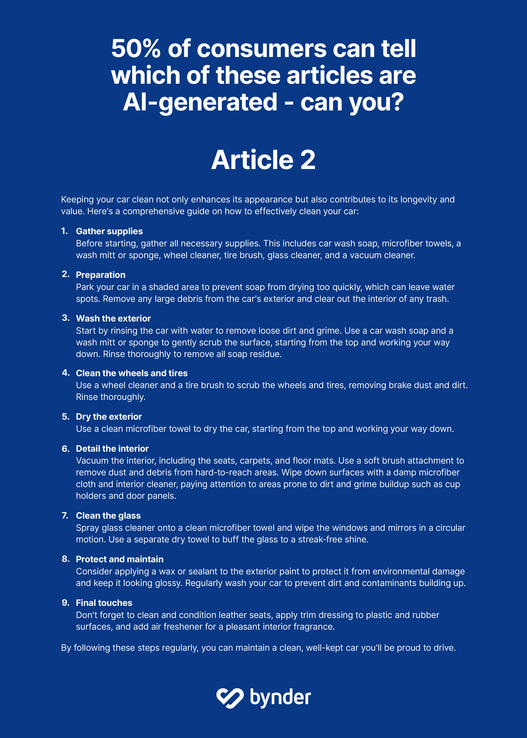
How to navigate AI-generated written content
Warren Daniels, CMO at Bynder:
“As AI advances and an increasing number of marketers use it for content creation, it’s important that we don’t lose sight of best practice. Our research goes to show that as AI use increases, the most important element of a marketing campaign should be the human touch.”
Methodology
1000 US and 1000 UK participants were surveyed on AI-generated copy. For the two articles, Chat GPT & a trained copywriter were given the same brief: “Write 300 words on how to clean your car”.















